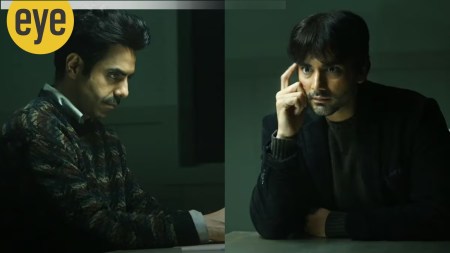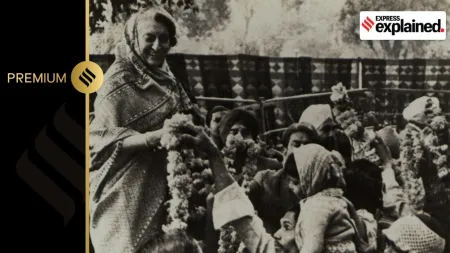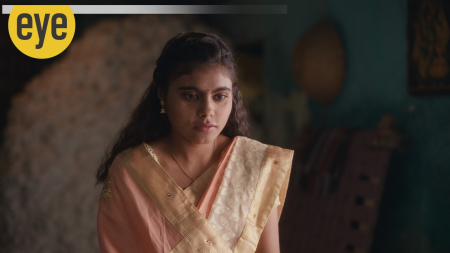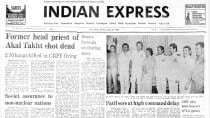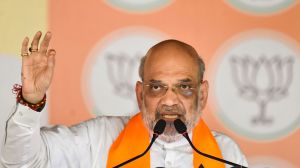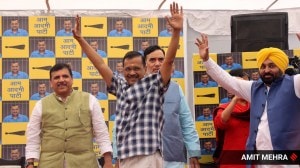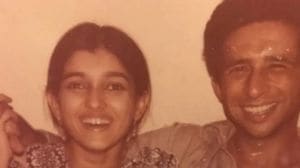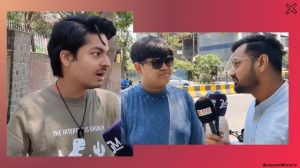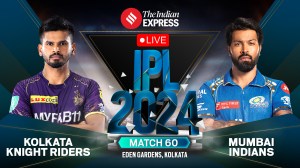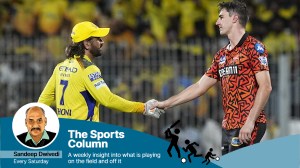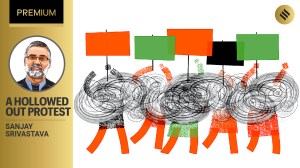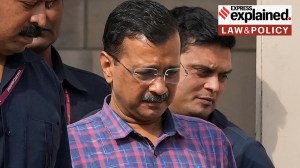- India
- International
The return of Indira
Janata’s collapse paved the way for her comeback.
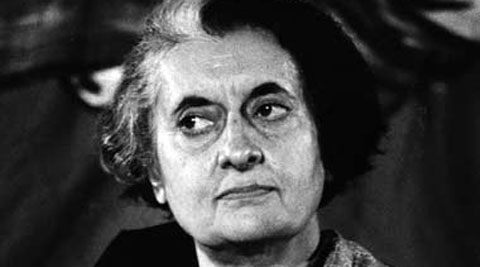 Former PM Indira Gandhi (Source: Reuters)
Former PM Indira Gandhi (Source: Reuters)
Once fresh elections were scheduled for December 1979, many started believing that Indira Gandhi’s return to power was possible, perhaps probable. Only her staunch loyalists considered it certain. Her advantages were obvious, of course, even though her critics hoped that her “cardinal sin” of imposing the Emergency would be an albatross round her neck. In the first place, the Janata had disgraced itself thoroughly and thus earned the contempt of even those who had voted for it exuberantly only three years earlier.
Second, and more important, she was being contested not by a single party, as in 1977, but by its two mutually hostile factions. The division of votes could benefit only her. No less crucial was the third factor. The huge spurt in attacks and atrocities on Scheduled Castes since the beginning of the Janata regime had turned this large voting segment back to Indira Gandhi, who had been fighting for this oppressed section of society since her famous elephant ride to Belchi. Moreover, the country had been suffering from an acute shortage of basic consumer goods.
This was partly due to a prolonged drought but the fault was naturally attributed to the party in power, especially because constant and bitter infighting had rendered it unable to function. One of the slogans on the campaign trail went, “Janata ho gayi fail, kha gayi chini aur mitti ka tel (The Janata has failed and has eaten up sugar and kerosene).”
No wonder that all through the campaign, Gandhi refrained from saying anything about the abolition of poverty, secularism, socialism or any other such issue. Her single-point call to the people was to elect a “government that works”. Her government in the past, she reminded her audiences, had done so and would surely do so in the future. It was on January 3, 1980, that election results started coming in, and within an hour it was clear that Gandhi was sweeping the polls.
The Times of India headline the next morning — “IT’S INDIRA ALL THE WAY” — said it all. However, this was based on voting trends. When the last result was announced on January 6, the tremendous scale of her triumph hit the country. Her party had won 353 of the Lok Sabha seats — one more than it had captured in the famous garibi hatao general election in 1971. She had done very well in south India even after the Emergency.

She now repeated this performance in the north. What happened in Uttar Pradesh, the state that sends the largest contingent of members to the Lok Sabha, was instructive. There, the rival factions of the Janata had declared themselves separate parties. Indira won 36 per cent of the popular vote but 60 per cent of the parliamentary seats. One of her two major opponents obtained 22 per cent of the vote and the other, 29 per cent. Yet, between them, they won 32 seats against the Congress (I)’s 50, which says a lot about the first-past-the-post system.
Incidentally, though elected on January 6 and requested to take the oath of office immediately, she refused to do so until January 14, which, according her astrologers, including a very senior colleague, was an auspicious day. This interregnum was to cause her government and the country quite a problem internationally. This can be discussed in due course at the appropriate place in this narrative.
Over her spectacular return to power Indira rejoiced doubly, for herself and, even more, for Sanjay. His electoral victory with a huge majority in his constituency of Amethi, where he had lost humiliatingly in 1977, had lent some legitimacy to his enormous power and title to the throne, both blighted in the past for having been built up behind the ramparts of the Emergency.
He was seen as having won his political spurs. Thus, there was greater acceptance of him as “crown prince” than before. His rough and rude manners had improved only marginally. There was absolutely no doubt, however, about the power he wielded. Even before winning the election, it was he who had chosen his party’s candidates. Of the 353 successful Congress (I) nominees, no fewer than 234 were new not only to Parliament but also to politics.
Of them, as many as 150 were staunch Sanjay supporters, hand picked by him to consolidate his personal power base. Innocent of the Congress culture, such as it was, and even of elementary parliamentary proprieties, short on cerebration and long on the use of muscle power, these Sanjay acolytes never hesitated to resort to violence on anyone coming in his way. Meanwhile, Indira paid no heed to advice from a friendly source that she should reconvert her party into what the Congress was in her father’s time. Instead, the Congress (I) soon turned into a combination of a praetorian guard and a Mughal court. Party members used to swearing allegiance and loyalty to the prime minister since 1969, amended their litany suitably. They now genuflected to both Indira and her “family”.
One of the earliest political moves she made was to impose president’s rule in nine states and order fresh elections there, exactly as the Janata had done on coming to power. Like the Janata then, her party won all the states this time. Sanjay was now at the zenith of his power or, as a Delhi journalist wrote, the “most vital factor in Indian politics”. He had presided over the selection of candidates and nominated all the nine new chief ministers. His mother had wisely rejected the demand of almost all members of her party that Sanjay should be chief minister of UP. He therefore selected V. P. Singh, who was later finance and defence minister in Rajiv Gandhi’s government, then became Rajiv’s nemesis, and finally prime minister for 11 short moths because the uneasy coalition he headed could not last.
In 1980, however, he was a different man. For, on being made chief minister of the most populous and politically key state, he declared, “Sanjay is a leader in his own right, and he is my leader too”.
The writer is a Delhi-based political commentator
EXPRESS OPINION
Must Read
More Explained
May 11: Latest News
- 01
- 02
- 03
- 04
- 05


